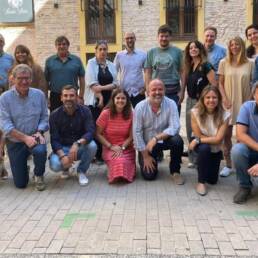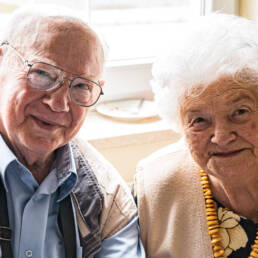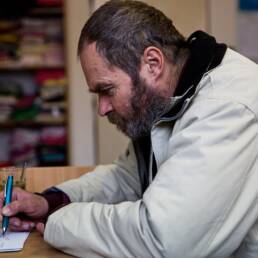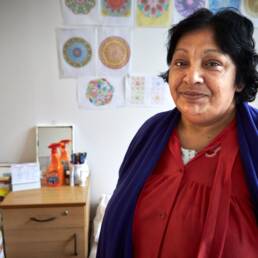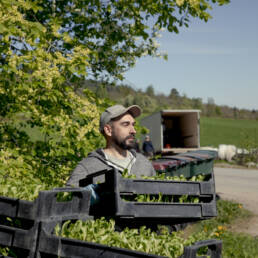Research launched by Caritas Europa and Don Bosco International on the social and professional future of young people in post-Covid Europe.
New research by Caritas Europa and Don Bosco International into the impact of COVID-19 restrictions on Vocational Education and Training (VET) reveals that over 57% of young people interviewed consider their education inadequate compared to before the pandemic.
The pandemic hit young people from disadvantaged backgrounds particularly hard. They had difficulties with e-learning and suffered from the digital divide in which those with better access to technology and fast Internet connections found it easier to continue learning. The research findings are based on 375 surveys completed by students aged between 14 and 22 who have been relying on Caritas’ social services or attending VET centres run by Don Bosco in Albania, Finland, Greece, Italy and Portugal.
We are seriously concerned about the current number of young people at risk of poverty in Europe. At the end of 2020, more than 700,000 young people in the EU were not in employment, education or training (NEETs). The impact of the pandemic and subsequent economic crisis on our young people and their employability calls for urgent policy actions.
Fr. Miguel Ángel García Morcuende, President of Don Bosco International
Due to a lack of combined education and training opportunities during the pandemic, more than half of the young people interviewed feel they are underprepared to enter the workforce, while a significant proportion, over 30% in Italy, declared they are not prepared to enter the workforce. This explains the lower number of students transitioning from school into the workforce from 2020 to 2022.
We must seize this unique opportunity to build a bridge between the 2022 European Year of Youth and the 2023 European Year of Skills. The EU should promote intergenerational solidarity and guarantee an accessible and inclusive reskilling and upskilling process for all, leaving no one behind.
Maria Nyman, Secretary General of Caritas Europa
According to the research, the sectors where students were most affected were those connected to the hospitality industry (tourism/restaurants/hotels) and to wellness/personal care services. For many, it was impossible to travel abroad, and less than 9% of the interviewees participated in international exchange experiences abroad. For Caritas Europa and Don Bosco International, it is crucial to reinforce the European programme in support of young people – the Youth Guarantee – through coherent actions and intergenerational solidarity.
More information
Maria Nyman
Secretary General
Stand in Policy and Advocacy Director
Tel: +32 (0)2 235 03 92
Mob: +32 (0)495 17 47 48
mnyman@caritas.eu
Susan Dabbous
Media Officer
Tel: +32 (0)2 235 03 94
Mob: +32 (0)478 58 54 35
sdabbous@caritas.eu


